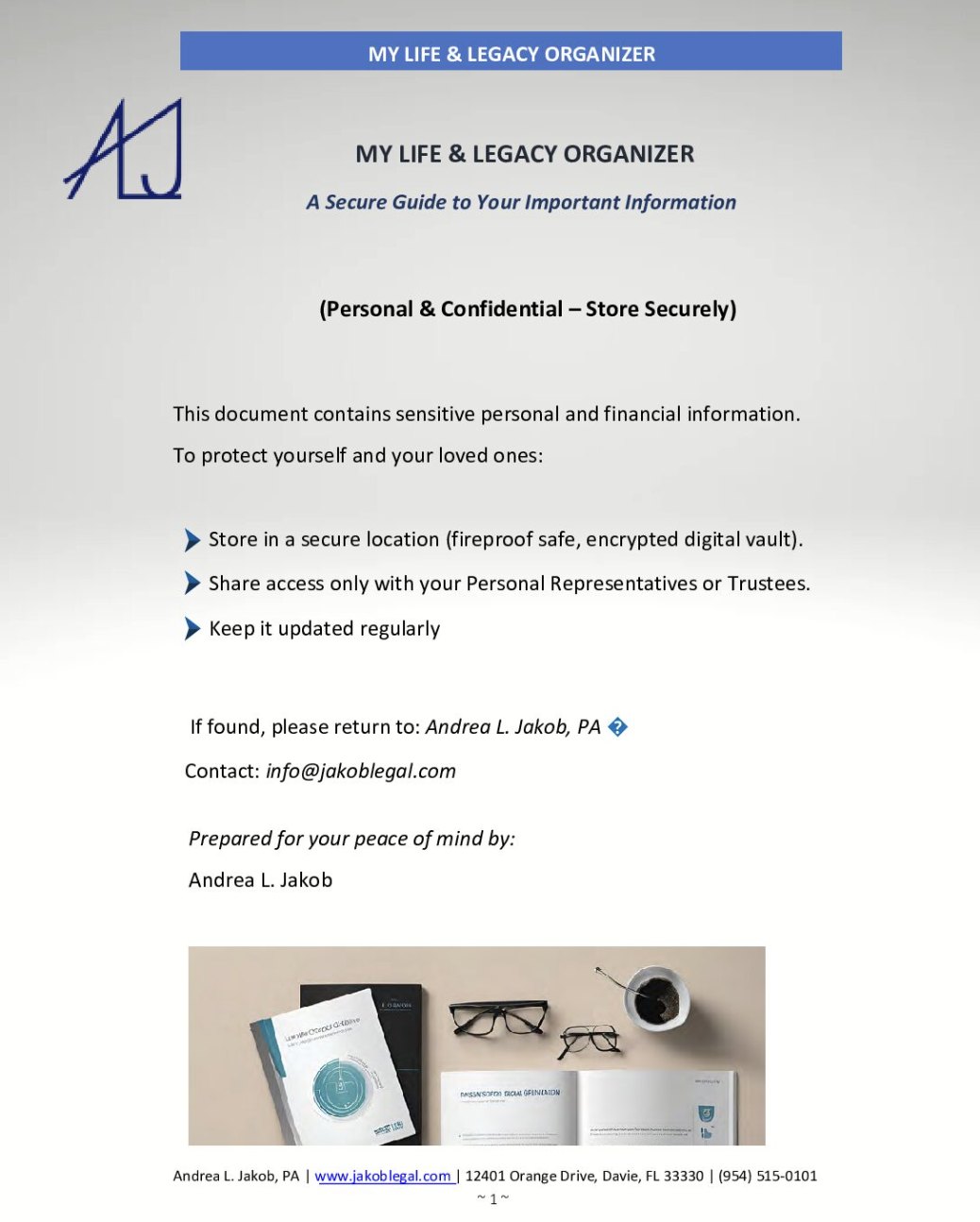In Florida, if a person dies without a will, their property will then pass on to their nearest relatives through the Florida intestate laws. These laws outline a strict formula that judges use to distribute the assets of the deceased to their family members. This is done to help avoid a situation where the assets of the deceased person end up in the possession of the state.
As an aside, please note that if you have minor children, without a will naming the guardian of your children, the court will determine who will act as guardian. The court will also appoint the person who will administer your estate. In addition, if you are unmarried, but have a partner, your partner will not inherit anything from your estate without a will naming him or her as a beneficiary.
These laws are inflexible, and very rarely do they carry out the specific wishes of the deceased individual. For these reasons, intestate succession is viewed as a sort of backup plan to be used by the courts to distribute the assets of the deceased when their intent is not known. Because of this, it’s essential to work with an experienced Florida estate planning attorney to ensure your estate plan and will are structured according to your wishes.
Property Not Affected by Intestate Laws
Not every asset will pass on to relatives through Florida’s intestate laws. Only the assets that would normally be included in a will are subject to intestate laws. Jointly owned property is most commonly not affected by intestate laws.
This includes, but is not limited to, bank accounts, vehicles, real estate, and any property that is owned by two or more people in a joint tenancy situation. Since joint tenancy usually includes rights of survivorship, the property will automatically be passed on to the surviving owners.
Who Will Inherit The Property?
When someone in Florida passes away without leaving behind a written will, the court will handle the task of identifying all surviving family members and determining who will ultimately inherit the deceased individual’s property. This is typically a straightforward process with one person or a small group of people qualifying to inherit intestate property, along the following lines:
- If the deceased individual leaves behind a child but no spouse, then the child will receive everything.
- In situations where the deceased individual leaves behind a spouse but no children or grandchildren, the spouse will inherit everything.
- If there are no spouses or descendants, then the surviving parents stand to inherit, and siblings inherit if there are no parents or other descendants.
What Does the Spouse Inherit?
If you are married and pass away without a will in Florida, what the surviving spouse inherits depends upon whether or not the deceased individual has left behind any children. A person who passes away with no children, grandchildren, or great-grandchildren leaves their spouse behind to inherit all of their intestate property.
If a person passes away and they have children or other descendants with their surviving spouse and that surviving spouse has no descendants from a previous relationship then the surviving spouse inherits everything.
If there are children or other descendants, then depending upon the asset, the surviving spouse may inherit half of the intestate property.
This isn’t just a given, it takes a judge in a Probate administration (and a year and about 2-3% of your assets in attorney’s fees) to determine the identity of your intestate heirs and to order the passing accordingly.
When Would The State Get Your Property?
It is common to be concerned that the state of Florida may become the beneficiary of your property if you pass away without a will. Fortunately, this rarely happens because the laws in the state are designed to make sure your property is passed to anyone even remotely related to you.
The only way the state will get your property is in situations where everyone in your family has passed away before you. This includes not just spouses, children, and grandchildren but also aunts, uncles, great uncles, great aunts, nieces, nephews, cousins of any degree, and the children, siblings, or parents of a spouse who passes away before you.
Read my article regarding why single people need estate planning here: https://jakoblegal.com/single-you-still-need-an-estate-plan/
Who Else Can Inherit?
In addition to the obvious relatives that stand to inherit, there are others who could potentially serve as your heirs in Florida according to state law. Any half relative in Florida will inherit as if they were a whole relative.
For example, if your brother with whom you share a mother but not a father survived you then he would have the same right to your property as he would have if you were both born to the same parents.
Also, relatives who are born after, but conceived before, you pass away inherit in the same way they would have had they been born when you were alive. Any relative entitled to inherit can receive their inheritance regardless of their immigration status.
Contact Our South Florida Estate Planning Team Today
If you or someone close to you has questions regarding what happens if you die without a will in Florida, Andrea Jakob and the JakobLegal team are here and ready to help with any questions you may have. Contact us today so we can begin helping you protect your future and that of your loved ones.

